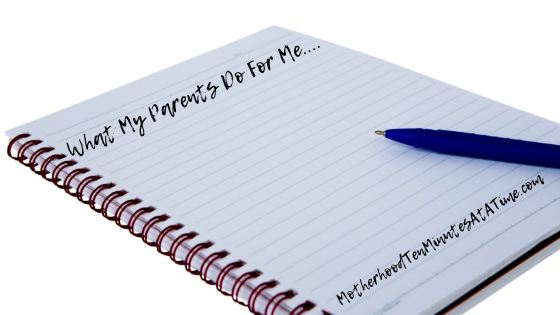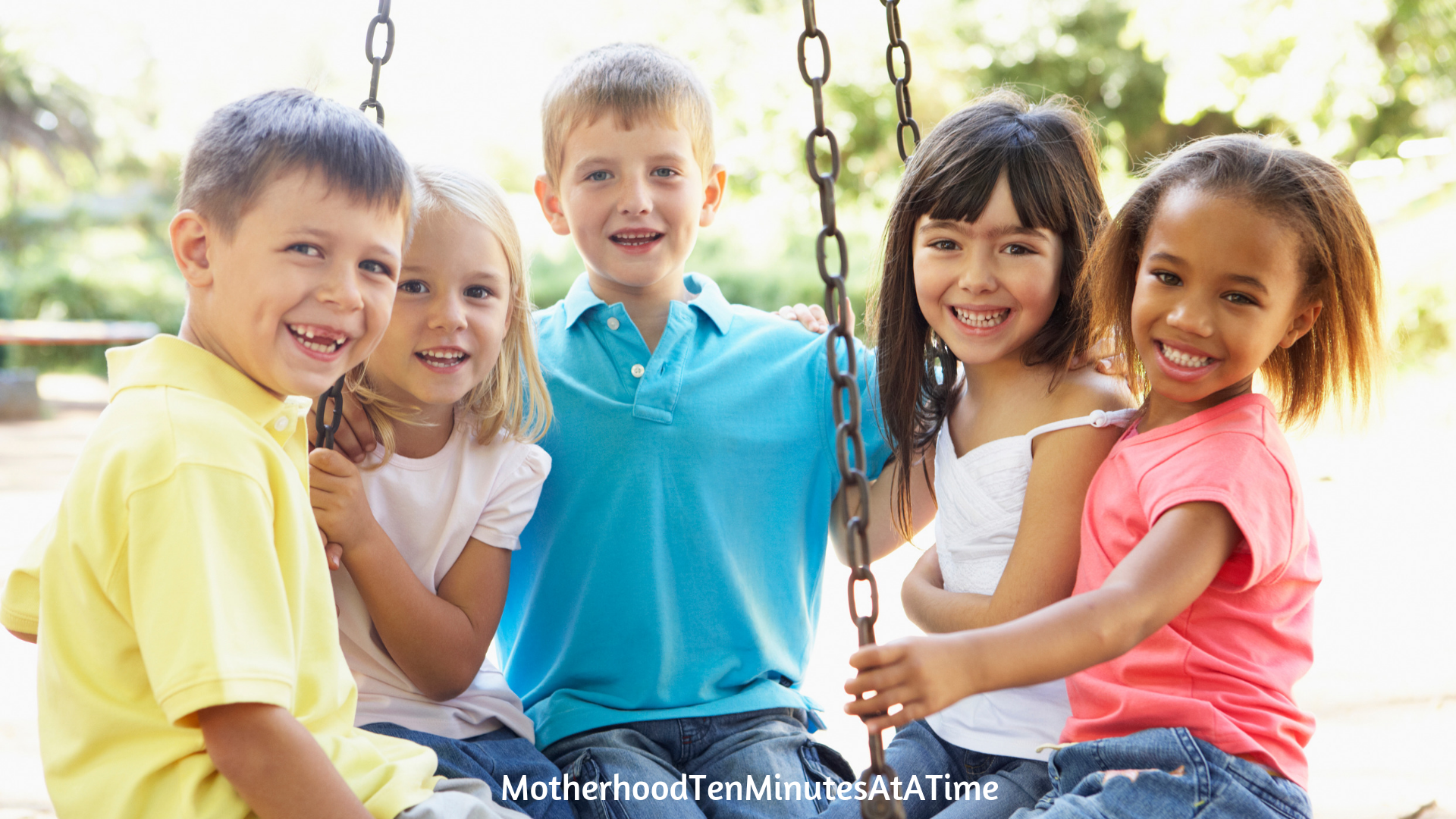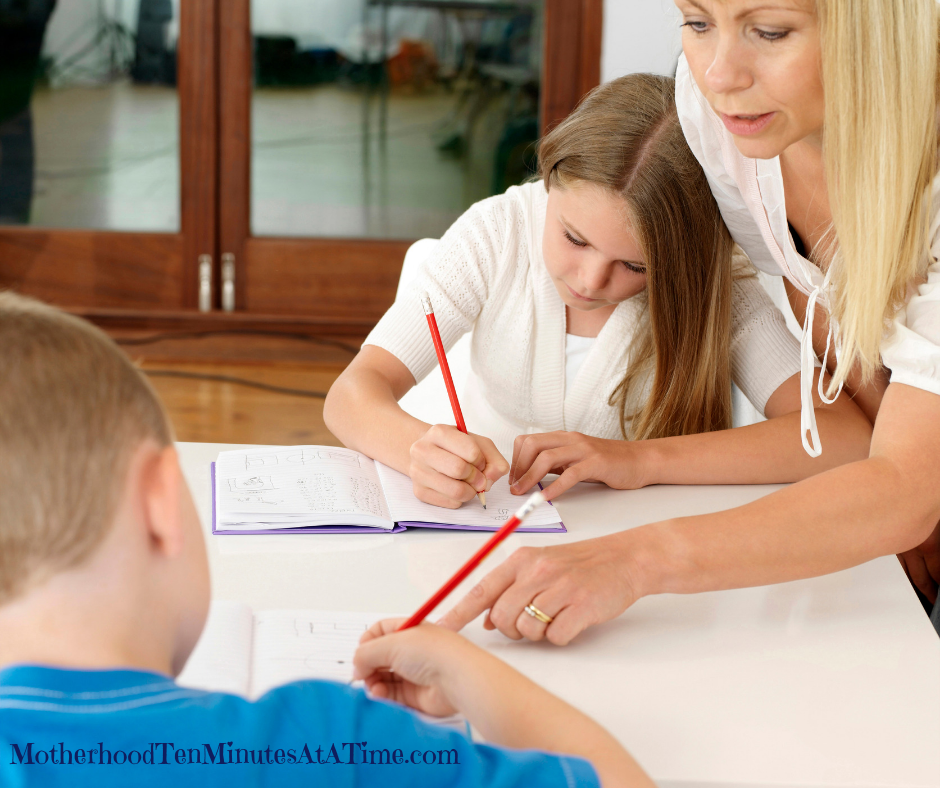How To Cultivate Respect In Your Children

This post may contain affiliate links and we may earn compensation when you click on the links at no additional cost to you.
Throughout time and across cultures, parents have taught their children to show respect to their elders in many different ways.
Every culture may have a slightly different approach, method, or expectation but the desire to teach our child respect is pretty universal.
Teaching our children respect is very important to myself and my husband but it is WAY harder to do than we ever realized before we became parents.
It takes conscious effort and intentional parenting to teach your child to respect others.
Teach Your Child WHY It’s Important to Respect Others
Your personal teaching style and your child’s age and personality will determine how you will teach them.
No one knows better than YOU how to best teach YOUR child.
Some children learn best with quiet one-on-one conversations while others benefit from group activities or problem solving.
However your child learns best, set yourself and your child up for success!
Ask them why they think it is important to show respect to others.
I am usually surprised by how much my child knows and what good ideas they already have.
Make sure that your conversation includes respecting the adults that care for and provide for us (parents, teachers, extended family).
Also make sure to teach them why it’s important to show respect to all other peers and adults (showing respect to others will help them build a strong unselfish character).
It is effective for children of all ages to go over real-life scenarios together to help them understand what it means to be respectful.
Scenario 1: Your mom asked you to empty the dishwasher and you yelled “No, why do I have to do that?!”.
Discuss with your child how many ways that is disrespectful (you should never yell at your mother, you should always do what she asks, you should be happy to contribute to your family, you should be thankful that your parents have provided food, dishes, and a dishwasher, and you should be thankful to have parents that value teaching you responsibility).
On the rare occasions that this scenario has actually happened in our house, that child has not only had a time-out and extra chore in addition to the dishwasher, but the child has been required to write a list of things that their parents do for them.

I don’t think any of our kids has ever had to do that writing assignment twice because they hated it so much (not only because they had to take the time to write them down but because it really makes them stop and think and they don’t like realizing they have been ungrateful).
Younger children can write or think of ten things but older kids and teens can be required to write one hundred things.
Nothing has taught our children respect better than helping them realize all the things that others actually do for them.
After they tried to write a simple list and then asked for help for additional ideas, we taught them to think deeper about each item.
If they wrote “My Mom makes dinner for me” then we would prompt them to think of what else that means Mom did for them (planned, shopped, prepared).
Learning respect begins with Gratitude.
Teach your child that we respect others, especially our parents and caregivers because of all the things they do for us and because it is part of developing a strong healthy character.
Teach Your Child HOW To Show Respect For Others
Children need to be taught very specifically what respect looks like, sounds like, and feels like.
Looks Like: Teach your child to exhibit respectful body language by making clear eye contact, relaxing their body (no clenched fists or glaring allowed), and standing in a non-confrontational way that allows for personal space for each of you.
Sounds Like: Teach your child that they are never allowed to raise their voices (especially to an adult) and that they are required to regulate their voices to be calm and consistent.
If our children ever let frustration creep into their voice during a confrontation we immediately stop them and tell them to “Try Again”.
If our child truly thinks they sound calm but they don’t, we can can show respect to them by explaining “This is how you said that just now _________(imitate their frustrated voice). This is how you need to say it ___________(same thing but calm, even voice).”
Teach them that it is okay to take deep calming breaths (no hyperventilating or angry breathing allowed) if they need to and that they should allow others to take deep breaths if they need to.
Feels Like: Teach your child that when we show respect to adults they will respect us back and when people show respect for each other they are both allowed to speak their mind respectfully and feel heard and valued.
Even though you are the parent and they are required to do what you have carefully, considerately, and wisely chosen for them to do, children will learn respect best from your example so the way that you treat them during a confrontation is how they will learn to confront others.
Help them identify how they are feeling and how you are feeling during calm confrontations so that they know they are not the only ones feeling frustrated (but that even when we are frustrated with someone they still deserve our respect).
At the end of every interaction with our children they should feel that they are heard, valued, and respected.
If they know that you will always be fair and respectful to them they are WAY more likely to comply with what you expect them to do.

Practice Makes Perfect
As we have struggled to cultivate a happy healthy family lifestyle we have realized how critical respect is in family relationships so we have made it a PRIORITY.
Making it a priority means that we practice EVERY day and are consistent in our expectations with our children.
When we practice there are three simple steps we always follow.
Step 1- Set yourself and your child up for success.
Many of the practice opportunities that come up to teach your children respect will be when your child or you (or both) are upset.
This means that you cannot wait until a calm time to reinforce respect, but you can certainly begin to teach your child about respect at a calm time.
Having calm conversations about why and how to respect others before your child finds himself in a situation that he doesn’t know how to handle will give him understanding and tools to use.
Reinforce often with your calm child what you expect and have them repeat it back to you so that you know they understand.
Then when the inevitable anger meltdown occurs and they yell at you, both of you already know what boundaries were broken and what will happen from here.
When both of you know what to expect you are both able to stay more calm.
Step 2- Consistency is KEY!
The most important thing that you can do for your child is to set limits AND REINFORCE THEM CONSISTENTLY!
If you are not consistent then you will undo all the progress you have made and your child will struggle to trust you.
It is okay to adjust your expectations and consequences when necessary, but make sure that you make those changes in a calm, considerate, and well-thought out manner (never a snap decision).
Also make sure that you talk with your child about the changes you are making and why you are making them.
Children always respond better to parenting when they know why and they feel like part of the process.
Our children feel safer when we are consistent.
Someone explained this to me really well: The expectations we give our kids are like the safety bars on amusement park rides. The first thing we do when they close is to test them to make sure they are going to keep us safe. We push and pull and jerk them to make sure they do not give way under pressure. Parenting is the same way. Our kids naturally test our parenting to make sure that we will be consistent with what we say we will do. When we are consistent, they can relax knowing that they have rules and expectations that will keep them safe and that they have parents who will always follow through. We are their safety bar. ♥

Step 3- Remember that teaching respect is a PROCESS!
So many parents think that they will set great expectations, have a nice talk with their kids about them, and that that is all they need to do or are capable of doing.
If this is you, sorry to burst your bubble, but your kids are not perfect and they will definitely test your limits and expectations over and over again during their lifetime.
When they do, follow through with calm coaching and consequences (if necessary) and move on.
Parenting, just like teaching respect, is a process.
The more you and your child practice, the better you will both be.
Rewards of Teaching Your Child Respect
The more respectful you and your child are to each other and other family members, the more happy and calm your family lifestyle will be.
Cultivating a wonderful family lifestyle takes hard work and consistent effort but it is the most rewarding and joyful investment you could make with your time and efforts in your lifetime.

The return on investment is infinite!
Imagine how peaceful and happy your home would be if a strong, mutual respect between all family members existed in your home.
Family harmony is readily available for those who seek solutions and are ready to work hard and be patient as they implement them.
May you and your child(ren) reap the wonderful rewards of teaching and exemplifying respect for one another.
Please share this article today with a wonderful family you love! ♥♥♥♥♥
Tags
- Cultivate Family Lifestyle
- Family Harmony
- Family Values
- Harmony
- How Do I Teach My Child To Respect Me
- How Do I Teach My Child To Respect Others
- How Do I Teach Respect
- Intentional Parenting
- Parent Help
- Parenting
- Respect
- Respect Adults
- Respect Family Members
- Respect Parents
- Respect Teachers
- Teach Respect To Your Child
- Teach Respect To Your Students
- Teaching Respect
- Teaching Respect To A Child
- Why Is Respect Important
- Why Teaching Respect Is Important
About The Author
savannahsal
This post may contain affiliate links and we may earn compensation when you click on the links at no additional cost to you.
Savannah loves being a Lifestyle Writer sharing her experiences and insights as a mother of six young children. She loves to empower mothers to find better balance and enjoy higher quality time with their family through purposeful family living.
Related Posts
Why Learning Math Is SO Important
This post may contain affiliate links and we may earn compensation when you click on the links at no additional cost to you.
This post may contain affiliate links and we may earn compensation when you click on…
April 26, 2019Survive And Thrive During Flu Season
This post may contain affiliate links and we may earn compensation when you click on the links at no additional cost to you.
This post may contain affiliate links and we may earn compensation when you click on…
February 11, 2019


Sarah | 9th Apr 19
Teaching our children to be respectful is so important, and yet there are so many kids out there that have not been taught this and it shows. It does take a bit of effort and time on our parts, but it is absolutely worth it. We all need to know the how and why of respect and teaching kids now will mean they have a firm grasp of this when they are adults.
savannahsal | 9th Apr 19
Amen, you said it beautifully! Thanks for sharing your thoughts Sarah ♥♥♥
Danielle | 12th Apr 19
This is such a great post!! I love the tips and examples you shared and I really loved the safety bar analogy! Thanks for posting! <3
savannahsal | 12th Apr 19
Thanks so much Danielle! I loved that safety bar analogy when I heard it too ♥
Meagan | 13th Apr 19
I love this! Respect is so important to me. I work in an environment where kids are not taught respect at home and it just makes me that much more conscious of how I teach my kids. I love your strategy of making them think of the things that others do for them and the example of the roller coaster safety bar is so good!
savannahsal | 15th Apr 19
Thanks Meagan! I love that teaching respect is part of your teaching and parenting style; your kids are so lucky to have you ♥♥♥♥♥♥
Christine | 16th Apr 19
This is one of the most important life skills that you can teach your children. I absolutely LOVE this article and think it is so important.
savannahsal | 18th Apr 19
Thanks so much Christine; we completely agree with you! ♥